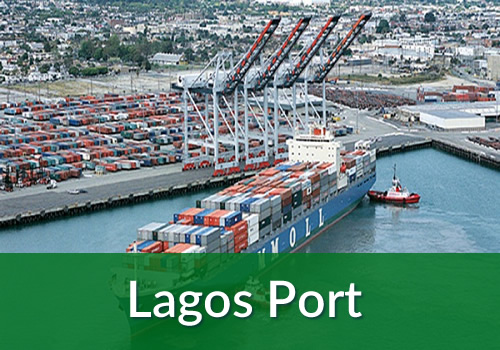Corruption and exercise of discretionary powers by the Nigeria Customs Service (NCS) and other port officials have had huge implications for the Federal Government ease of doing business in Nigerian seaports and terminals, leading to a revenue loss of about N2.5 trillion annually in the ports industry.
This is contained in a report made available to participants in Lagos, on Tuesday, at a Round Table Session by the Maritime Anti-Corruption Network (MACN) and its private-sector facing arm, Convention on Business Integrity (CBI).
The report, which was jointly funded by ActionAid and UK Aid, revealed that negative operational elements had pushed many customers to now use ports and terminals of neighbouring countries, thereby leading to loss of foreign exchange earnings for Nigeria.
The report, which was researched by Dr Olayinka Akande of the Department of Sociology of the University of Ibadan, further stated that port capacity utilization in Nigeria stands at between 38 and 40 per cent.
Akande said that approximately 40 per cent of businesses located around the ports communities have either relocated to other areas, scaled-down operations or completely closed down.
According to the report, “There is a general consensus that corruption exists in the ports and have grown over the years to the extent that the most popular identities of ports in Nigeria are corruption and inefficiency.
“A major issue in the ports inefficiency marketplace is the role of noncompliance with extant rules by actors. While the Standard Operating Procedure (SOP) is clear on many of these issues, the real situation on the ground appears to vary. Many people subvert rules and refuse to comply with regulations.
“While this noncompliance is corruption in itself, it further builds direct corruption by creating a fertile ground for grand corruption.
“There is thus the need to further understand the compliance face of the inefficiency issues at the ports. There are usually high cost of doing business in the ports as charges are inconsistent, yet where the monies from high cost go is uncertain with very little fractions going into government coffers.
“The problem is not about relevant policies, frameworks or government order and pronouncement but compliance. Even when authorities put relevant policies in place, compliance and enforcement is poor.
Port officers/officials appear too strategically and creatively powerful that they manipulate the system and port operations with unwavering exercise of discretions against the rules even when this makes doing business at the ports difficult.”
The report recommended that the government needed to empower the Nigerian Ports Authority (NPA) to be able to maintain effective oversight on all officials and officers at the port.
“The NPA should be able to sanction non-compliance and exercise of discretions directly and indirectly. There is also the need to empower customers to report corruption and inefficiency directly to the highest level beyond the ports in way that will prevent witch-haunting and backlashes.
“Customers should become strategic partners in enforcement/compliance and driving anti-corruption. Officials still exercise discretionary powers and perpetrate corruptions without fear of consequences, “it stated.


